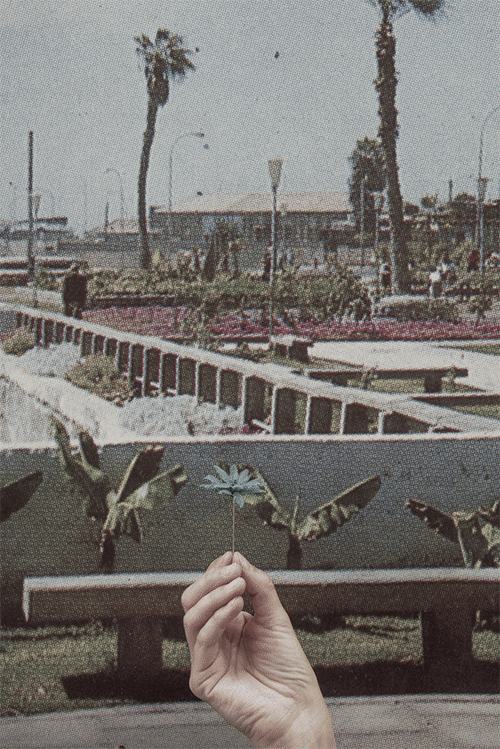Colonial agencies have framed the view of the land, not only by promoting a perspective of an empty place, but also in the way in which all natural resources have been named and classified. The perception of the landscape in Chile still occurs as a mirror to that which was perceived as being in a distant land, and this perception has constrained the way people can envision, plan and experience its territory today. This research undertakes a decolonial visual inquiry into photographic landscape in Chile. By engaging specifically with an everyday landscape and the garden, this research reworks relationships between people and their perceptions in lived environments. Through this investigation I seek to interrogate how colonial views of the land have framed experience and perception of Chilean territories, from the infrastructural, to the everyday.
Focusing on gardens as the sites to engage with decolonial approaches, this research was undertaken at two distinct locations, Puerto Varas and Iquique. I look at how gardens as landscapes are perceived, made and represented. I further work through photographic practice to develop alternative views of landscape that involves people within the places they inhabit. Working with photography as a tool to get involved at these sites, I extend Flusser’s concept of the technological apparatus by investigating photography as a process of ongoing creation. Consequently, I create a series of visual experiments which critically explore the issues emerging during this research, and allow me to create an alternative way of representing Chilean landscapes whilst reworking their form, content and circulation through an engagement with decolonial practices, theories and inhabitations.
Consequently, this inquiry has several implications for the three main problems it addresses. Firstly, the representation of landscape (and its colonial imposition); secondly, the photographic apparatus and its relation to textural descriptions and the metadata; and, finally, decolonial experimentation as a process of practical engagement.
Maria / Rosario Montero
Maria / Rosario Montero is a photo-based artist with a BA (PUC Chile), MFA (University of Chile), Master in Digital Anthropology (UCL) and recently PhD in Cultural Studies (Goldsmiths College). Shee had his first solo exhibition at the CCE Gallery (Chile) in 2004. She has participated in several group exhibitions in Chile, China, Mexico, Spain, United Kingdom, Peru, USA and Venezuela, among others. In 2010, 2014, 2017, 2018 she won a government art fund for the development of his artistic practice (FONDART). Her work is part of the selection of contemporary Chilean photographers for 02 / CNCA (2010) and C Photo edition, “New Latin Look” curated by Martin Parr (2012). Today she participates and is one of the founders of Border Agency art collective.
